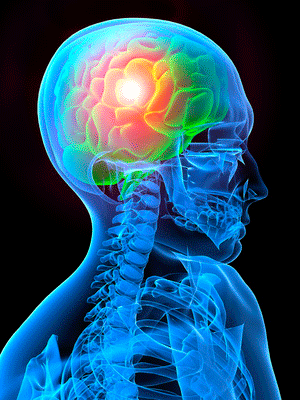
Inflammation and Alzheimer's
Gretchen Heuring for ElderThink
Alzheimer's actually causes inflammation. Researchers have long known that the presence of amyloid plaques in the brain stimulate an inflammatory response. Some of this news is good and some of it is bad. There is a delicate balance. I'll explain.
I will explain!
Amyloid plaques stimulate a type of immune cell called microglia. This cell then produces chemicals called cytokines which "turn on" the immune system. When this happens, the microglia can engulf and destroy amyloid plaques. Well, this seems easy. Why don't we just get those microglia working to make us better? Well, there's a catch. Over stimulation can cause nerve cells in the brain to be attacked and destroyed. If we don't manage this aspect immune system just right, it overheats and cooks us. So researchers have a lot of work to do.
Scientists Know More
Scientists have learned a little more about Alzheimer's and inflammation. They have discovered a receptor called CXCR2 on the nerve cell surface that triggers more amyloid plaque production in response to inflammation. They are working toward development of a drug that can block the CXCR2 receptor.
Why Doesn't Inflammation Hurt?
If we have inflammation in our brains or parts of our bodies, why doesn't it hurt? Dr. Barry Sears says in his book, The Anti-Inflammation Zone
, "Inflammation can be silent. It falls below the threshold of pain." So sometimes it is there inside us doing damage but we can't feel it.
What Other Ways Can Silent Inflammation Effect Us?
It seems strange that something we don't know about or feel can be wrong with our bodies, but silent inflammation can affect the heart causing shortness of breath or leg swelling; it can affect the lungs causing an asthma attack; and it can cause high blood pressure or even kidney failure. Anyone prone to silent inflammation should seriously consider a "mediterranean diet."
What does all this have to do with Alzheimer's Disease?
Cleveland Clinic researchers have identified a protein in the brain that plays a critical role in the memory loss seen in Alzheimer's patients. The protein – Neuroligin-1 (NLGN1) – is known to be involved in memory formation; this is the first time it's been linked to amyloid-associated memory loss. In Alzheimer's disease, amyloid beta proteins accumulate in the brains of Alzheimer's patients and induce inflammation. This inflammation leads to certain gene modifications that interrupt the functioning of synapses in the brain, leading to memory loss. Cleveland Clinic researchers have discovered that during this neuroinflammatory process, the epigenetic modification of NLGN1 disrupts the synaptic network in the brain, which is responsible for developing and maintaining memories. Destroying this network can lead to the type of memory loss seen in Alzheimer's patients. "Alzheimer's is a challenging disease that researchers have been approaching from all angles," said Mohamed Naguib, M.D., the Cleveland Clinic physician who lead the study. "This discovery could provide us with a new approach for preventing and treating Alzheimer's disease."


